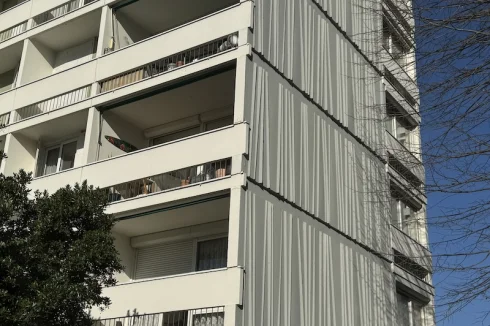Ruyter Social Charges Reimbursements
Wednesday 04 November 2015
The French government have issued formal guidance on the
reimbursement of social charges imposed on those not affiliated to the social
security system in France.
The publication of the guidance follows the decision of the European Court of Justice in the 'Ruyter' case last February, confirmed by the French Conseil d’État in June.
In the case the courts ruled that, as the social charges (prélèvements sociaux) were earmarked to finance the social security system, those who had no entitlement to benefit from social security services in France could not be made liable for the charges.
The judgement was a confirmation of European Regulation 1408/71 which states citizens can only be subject to one social security system.
Eligible Persons
The government have stated that both residents and non-residents are eligible for a reimbursement, provided they are not in the French social security system.
Accordingly, non-residents from within the EEA (and Switzerland) and those resident in France not affiliated to the French system are entitled to a refund of social charges.
Those residents who qualify include retired persons who obtain their health cover via an S1 certificate of exemption.
Those who are covered for health via a private insurance policy may also have an entitlement, although their position is more complicated as they may not be able to demonstrate they are affiliated to another social security system in the EEA.
Those working in France on temporary detachment from another EEA country, and remaining in the social security system of their home country, would also be entitled to a refund.
Non-Europeans
Those living outside of the EEA would also appear by the jurisprudence to have a compelling case for a refund, but the government have resisted the pressure to extend the exemption to such persons. They have done so on the basis that the judgement of the ECJ relates merely to those who live and work within the EEA.
However, last year the supreme administrative court in France, the Conseil d’État, ruled that the imposition of a higher rate of 34% capital gains tax on those who lived outside of the European Economic Area was discriminatory and therefore illegal.
Following the court decision the government were obliged to change the law to harmonise at the same rate at 19% for everyone, irrespective of their place of residence.
Accordingly, those living outside of the EEA would be well advised to submit a claim for a tax refund at the earliest opportunity, and be prepared to commence a legal action if it is refused.
Modalities of Reimbursement
The government have also excluded from reimbursement an element of the social charges.
This is the 2% 'prélèvement de solidarité' that is applied to capital gains, rents and investment income. They have done so on the basis that the levy does not finance the social security system and was not part of the Ruyter decision.
As a result, the level of reimbursement on such income and gains will be at 13.5% and not 15.5%.
The period covered by the reimbursement are for charges paid since January 2013 for capital gains, or charges for which the tax notice was received after 1st January 2013. This means social charges imposed on rental and investment income received in 2012 and paid in 2013 are eligible for reimbursement.
As a result, those who paid social charges in 2012 on their capital gains (when the legislative tax change took place), will not be entitled to a refund. There continues to be discussion about that omission in the French parliament, and it may yet well be the government will be obliged to concede on it.
In addition, there will be no automatic refund; it will be necessary to submit a formal claim for reimbursement, and to do so in accordance with due procedure.
Unsurprisingly, that procedure is somewhat complex and arduous, requiring that the claimant submits evidence of:
- The social charges that have been imposed, either via tax avis d'imposition, or, in the case of capital gains, Form 2048 IMM-SD;
- Affiliation to a social security system elsewhere within the EEA (or certificate of private health insurance policy?);
- Copy of passport or identity card;
- Certificate of tax residency in another country (for non-residents) for the relevant period.
The guidance also states "for the purpose of checking whether the social security contributions in question were levied on income whose recipient was insured outside France, the appeal must include every piece of information enabling this recipient to be identified (individual property belonging to the person not insured under a French social security scheme, applicants’ matrimonial property regime, property held in common by individuals insured and not insured in France, etc."
Claims for social taxes paid 2013 and 2014 need to be made by 31st Dec 2015. They can be made via the internet, or direct to your tax office.
A procedure for reimbursement of social charges imposed at source (interest, dividends) has yet to be published.
What remains clear is whether as part of the claim the government will require an election of domicile in France (a technically), as is formally required by the Article R197-5 of the Livre des Procédures Fiscales, in which it states: "Tout réclamant domicilé hors de France doit faire élection de domicile en France." We can only presume that if it is not mentioned in the guidance this requirement has been waived, but we cannot be certain.
For those who may be concerned about tripping up on procedural irregularities, or who otherwise need professional advice, you can contact us at [email protected] for details of an advisor.
And The Future?
As we reported last month, the government have indicated that they intend to pass new legislation to bring the imposition of social charges in line with European law so that those not affiliated to the French social security system will continue to remain liable.
This is to be achieved by moving the allocation of receipts from social charges from the general social security budget to the Fonds de Solidarité Vieillesse (FSV), a fund that provides supplementary income support to pensioners whose income falls below a minimum level.
This proposal is contained in the social security bill currently being considered by the French parliament.
The government argue that because the benefits arising from FSV are non-contributory it is compatible with European law.
However, the ECJ in the Ruyter judgement stated that it was not relevant whether or not the charge was contributory or non-contributory; the fact that the receipts were allocated to the social security budget was enough for it to be illegal.
The reflex by the government is not unexpected, but it is of interest to note that they do not appear to be entirely sure it is legally watertight, with Christian Eckert, the Minister of the Budget, having candidly stated, "Dire qu’il est d’une solidité juridique totale serait exagéré."
If that is the case it is likely there will be legal challenges to the change, during which time of course the government will be able to benefit from the receipts.
Next Article: Cheapest House Prices in Brittany
Thank you for showing an interest in our News section.
Our News section is no longer being published although our catalogue of articles remains in place.
If you found our News useful, please have a look at France Insider, our subscription based News service with in-depth analysis, or our authoritative Guides to France.
If you require advice and assistance with the purchase of French property and moving to France, then take a look at the France Insider Property Clinic.





